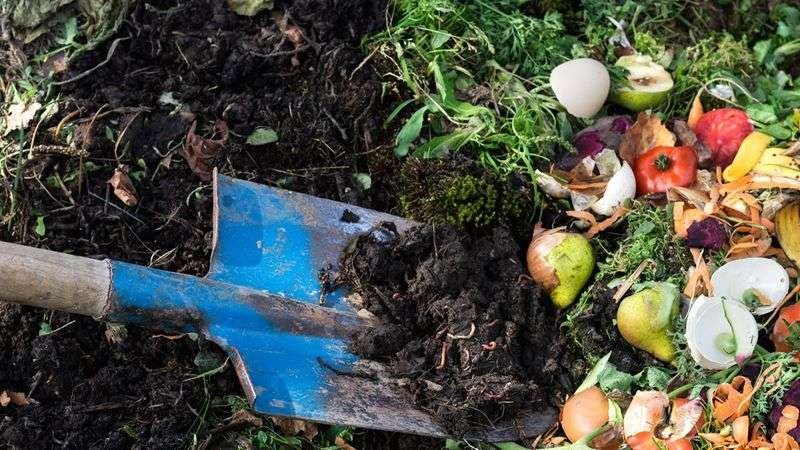Living a natural lifestyle in the modern world can sometimes be difficult. With so much information on the internet, it’s hard to know where to start in regard to your health and well-being. Luckily, this article is here to guide you through everything you need to know about organic waste management and leave you feeling more informed than ever!
Organic Waste Management
Organic waste is one of the most important things that you can recycle. Not only does it help the environment, but it also saves you money in the long run. Here are some tips on how to manage your organic waste:
1. Plan ahead. Make a plan for how you will be handling your organic waste and stick to it. This will help you avoid Waste Management hassles and keep your waste organized.
2.Composting is key. Composting helps decompose organic material and produces valuable nutrients for plants. You can either compost in a backyard pile or use an indoor compost bin.
3. Recycle everything! Don’t just toss food scraps in the garbage – recycle them into compost or mulch. Use glass, metal, paper, plastics and other materials to repair items around your home or make new items.
4. Don’t dump it all in the landfill! If you can’t compost it or recycle it, try reducing your waste by throwing it in the garbage less often.
5. Get creative! There are many ways to reuse, recycle and reduce your organic waste – find what works best for you and your family!
Why is Organic Waste Important?

Organic waste is important because it can be used to create new materials or energy. Organic waste is also a soil conditioner, meaning it helps improve the soil’s fertility and allows for a better growth of plants.
Types of Processing Systems: Open Systems, Closed Systems, and Circular Systems
There are three main types of waste processing systems: open systems, closed systems, and circular systems. Each has its own advantages and disadvantages, so it’s important to choose the right one for your waste management needs. Here’s a quick overview of each system:
Open Systems: These systems allow waste to mix with the environment and can be very inefficient.
Closed Systems: These systems keep waste isolated from the environment and are more efficient than open systems, but they can be more expensive to build.
Circular Systems: These systems recycle all the waste that comes into them, leading to lower environmental impact and cost savings over time.
Also Read: Find the Ideal Fireplace Heater: The Heart of the Home
What are the Benefits of an Open System? What are the Downsides of an Open System?
Organic waste management typically employs an open system in which organic materials are allowed to decompose naturally. The benefits of an open system include more efficient use of resources, reduced environmental impact, and a reduction in the amount of hazardous materials produced.
However, there are also some downsides to an open system. For example, organic materials can become contaminated if not managed properly, and the process can be time-consuming and expensive.
What are the Benefits of a Closed System? What are the Downsides of a Closed System?
Organic waste contains valuable nutrients that can be used in the production of new crops or compost. Properly managing organic waste helps prevent pollution, reduces greenhouse gas emissions and conserves natural resources.
A closed system is a type of organic waste management system in which organic material is composted and/or recycled into new products. Closed systems have many benefits, but there are also some drawbacks. Here are four key points to consider when choosing a closed system:
1) Closed systems may be more expensive than open systems. This is because you must invest in equipment to handle the waste and manage the process, and you may need to hire someone to do this full-time.
2) Closed systems may not be appropriate for all types of organic waste. Some materials, such as plastics, cannot be broken down by microorganisms and must be burned or buried.
3) Closed systems can create environmental problems if they are not managed correctly. For example, if the system is not kept clean enough, bacteria will build up and release methane gas, a potent greenhouse gas.
4) Closed systems require careful planning and execution to ensure they work well. If done incorrectly, they can lead to wasted resources and dangerous situations.
What are the Benefits of a Circular System?
Organic waste management is becoming more and more popular, as people become more aware of the benefits of using organic materials. A circular system is a common way to manage organic waste, as it offers many benefits over other systems.
First, a circular system helps to prevent pollution. By recycling materials, you are preventing waste from entering the environment in an uncontrolled way. This helps to protect both the environment and the health of people who live nearby.
Second, a circular system is economical. By using resources throughout the cycle, you are conserving resources. This can save you money in the long run. Additionally, by composting your waste, you are creating valuable soil that can be used to grow plants. This not only helps to preserve natural resources, but it can also help to reduce your food budget.
Finally, a circular system is environmentally friendly. By using natural processes such as composting, you are reducing the amount of energy required to process your waste. This reduces the amount of greenhouse gas emissions that are produced.














